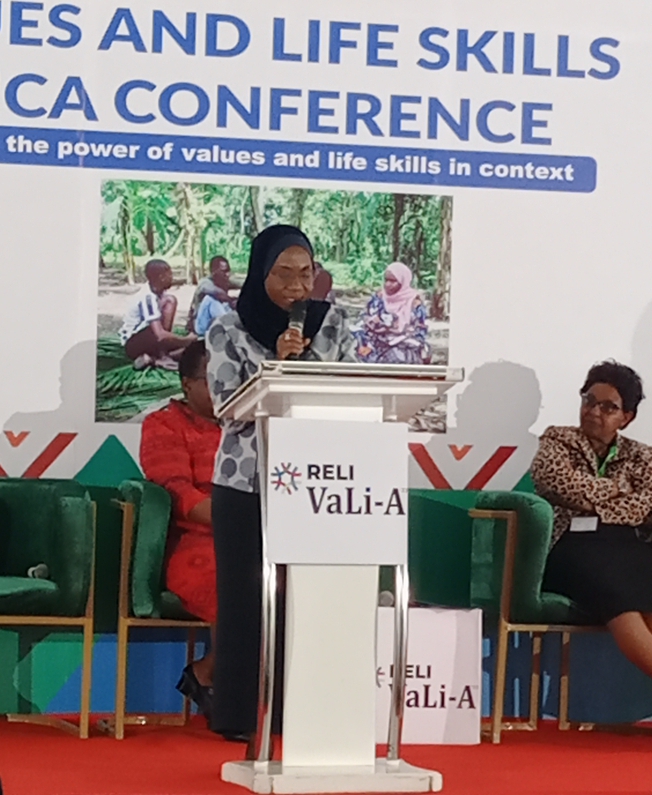Esther Muoria, the Principal Secretary for the State Department of Technical, Vocational Education, and Training (TVET), advocates for practical skills training among the youth, emphasizing its relevance in today's job market. Muoria highlights the pivotal role of TVET institutions in providing hands-on competencies essential for self-reliance and job creation. She stresses the necessity of aligning education with industry demands, noting the evolving nature of required skills in the 21st century. Muoria underscores the importance of mental health support within educational and work environments, urging a focus on well-being alongside skill development. Additionally, Edwin Tarno, CEO of the Kenya School of TVET, emphasizes the need for youth to pursue emerging fields such as data analytics, artificial intelligence, and digital marketing to meet future job demands.
Esther Muoria, the Principal Secretary for the State Department of Technical, Vocational Education, and Training (TVET), champions a paradigm shift in education, urging youth to embrace practical skills for holistic development. Muoria underscores the transformative potential of TVET institutions, emphasizing their role in fostering self-reliance and entrepreneurial spirit among young learners. She highlights the dynamic nature of today's job market, emphasizing the need for adaptable skill sets that align with industry demands.
In her address, Muoria advocates for a balanced approach to education, one that not only equips individuals with technical expertise but also cultivates essential life skills such as critical thinking, creativity, and digital literacy. Moreover, she emphasizes the importance of mental health support within educational and professional environments, recognizing the impact of stress and burnout on individuals' well-being.
Echoing Muoria's sentiments, Edwin Tarno, CEO of the Kenya School of TVET, underscores the significance of preparing youth for emerging job sectors such as data analytics, artificial intelligence, and renewable energy. Tarno emphasizes the need for a forward-thinking approach to education that anticipates future job trends and equips learners with the necessary tools to thrive in a rapidly evolving landscape.
Together, Muoria and Tarno advocate for a holistic approach to education that empowers youth to not only secure employment but also become drivers of innovation and change in their communities. Through collaboration between educational institutions, industries, and policymakers, they envision a future where every individual has the opportunity to realize their full potential and contribute meaningfully to society.
.png)















Comments 1
Leo
Good report